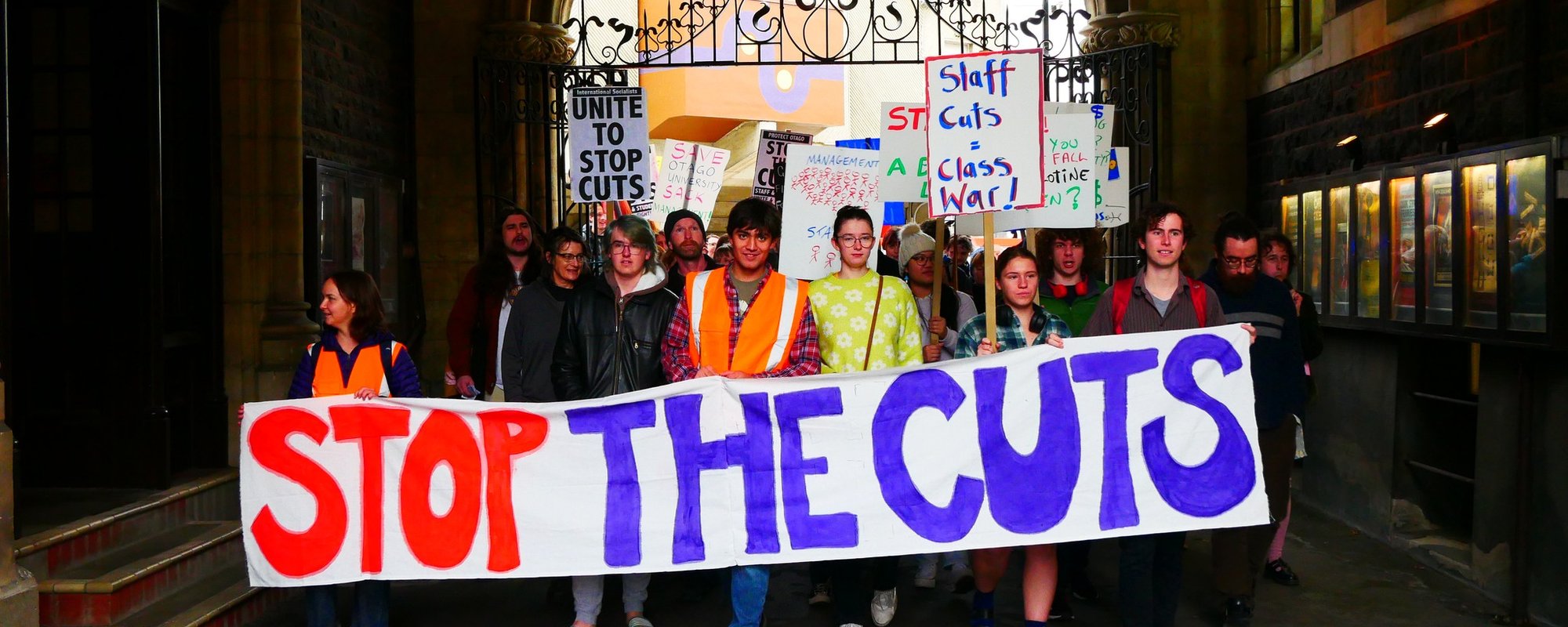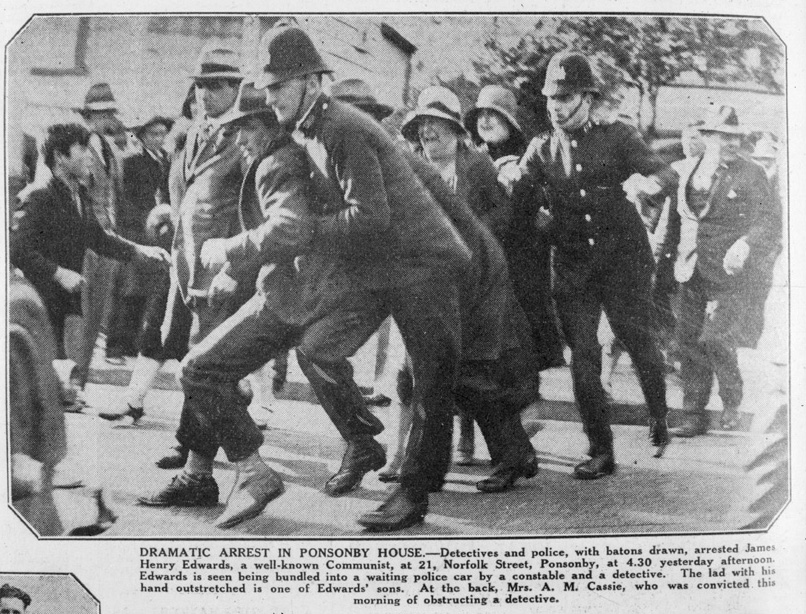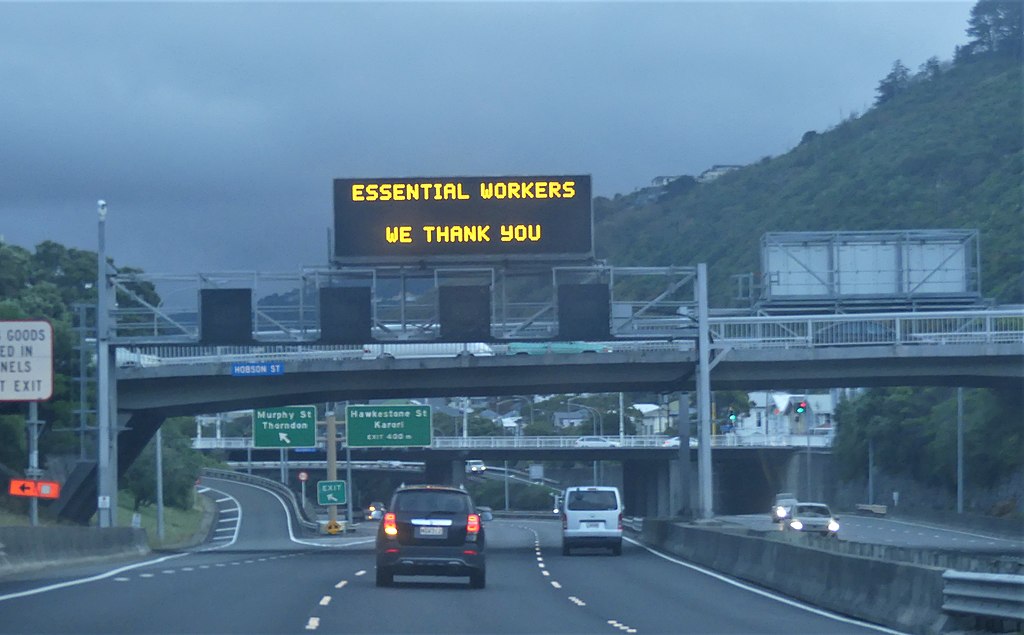Support essential workers! Give them PPE!
Beware Slackening the Fight against COVID-19
The lockdown against the spread of COVID-19 is, among other things, a piece of class struggle. Workers socially distancing themselves and limiting their exposure to essential workers (keeping supermarket shopping to an absolute minimum and following distancing guidelines) are acting together to save lives. Workers demanding PPE to do their job safely are putting demands on the government and their employers.
These concessions – and the government’s comprehensive lockdown – come quickly into tension with the needs of capitalism. Bosses are aghast at lost profits. What our side looks at is the chance to save lives, if not our own then our grandparents’, parents’, relations. What the bosses see is a delay to normal business, and they want the lockdown lifted as soon as they can.
After a week’s quiet in the face of public unity, right-wing intellectuals are now preparing the talking points to pressure a premature lifting of the lockdown.
A public health response to COVID-19 is in opposition to workplaces remaining open for business-as-usual profit-making. Class struggle has broken out around the world over the health and safety risks of going to work. Everywhere, the ruling class initially resisted national lockdowns. Where lockdowns became inevitable the rulers limited their scope. Everywhere, the capitalists, through their pet politicians and ideologues, are seeking early ends to the work closures. In country after country the rightwing would rather allow COVID-19 to sweep through the population instead of see a fight against the spread of infection by people staying at home. The rightwingers would sacrifice the lives of millions of COVID-19 victims, mostly the elderly, rather than have workplaces closed.
On 3 March, Jeremy Warner published in the Daily Telegraph the thinking of many British Tories. He wrote: ‘Not to put too fine a point on it, from an entirely disinterested economic perspective, the COVID-19 might even prove mildly beneficial in the long term by disproportionately culling elderly dependents.’
What Jeremy Warner said was in tune with the policy of Boris Johnson’s administration at the time. This was to sacrifice tens of thousands of lives to achieve ‘herd immunity’. On the 21 March, Gareth Davies in the Daily Telegraph explained:
The UK’s Chief Scientific Adviser has said a degree of herd immunity will help the UK population as Covid-19 spreads. Sir Patrick Vallance acknowledged there are fears that clamping down too hard on the spread of the virus through tight social distancing measures could see it return in the future.
He said the aim is to “reduce the peak, broaden the peak, not suppress it completely; also, because the vast majority of people get a mild illness, to build up some kind of herd immunity so more people are immune to this disease and we reduce the transmission”.
The Johnson Government eventually did a U-turn and adopted a lockdown. The delay has cost thousands of lives.
In the USA lockdowns have been piecemeal and partial, state by state, in the absence of direction from the White House. Trump has had to row back from his foolish aim of opening businesses by Easter, but the threat of early liftings of lockdowns are ever-present.
In Aotearoa the emergency measures adopted by the Ardern government are comprehensive and were applied early, compared, that is, with the tardy behaviour of every other Western regime. The danger is that the lockdown will be relaxed too early. A slew of rightwing voices are calling for running that risk.
Luke Malpass, Stuff political editor, recently published his opinion under the headline ‘Coronavirus: Health is important, but it cannot be the Government’s only aim.’ He says:
But here lies the rub: the Government cannot – and should not – prioritise health considerations, even including deaths, above all else. At the root of the Covid-19 fear across the world has been a public policy – and therefore, to put it bluntly, retail politics – problem.
One Cabinet minister put it to me that New Zealand’s coronavirus approach needs to not fall prey to a Rogernomics-style zealotry in stamping out the virus, at the expense of all other considerations. Several Government sources spoken to by Stuff have expressed mounting frustration over what they see as the Ministry of Health getting ideas above its station.
Because of the nature of Covid-19, it could clearly overwhelm healthcare systems for a period and a lot of people could die who didn’t need to. Governments seen to be doing nothing about this would likely be turfed out – ours included.
But that doesn’t mean the Government can stop all deaths – that’s just moral posturing. The New Zealand government makes life and death decisions at every Budget.
Malpas’s effort follows a report on RNZ on National Party finance spokesperson Paul Goldsmith saying the “number one priority that we have as a country is to get out of lockdown as soon as we can.” Former Listener deputy editor Joanne Black wrote in Stuff on Friday that she remains “more afraid of the economic fallout” than the virus. All of this is to soften us up to the lockdown being undermined.
Also, there was a piece by Matthew Hooton in the New Zealand Herald calling for a staged return to work. Hooton is condemned as vile by his own words. He said that according to the data being used by the government 27,600 people, 89 percent of which over 60+, would die under the worst case scenario in doing nothing. He continued:
Ardern and all of us have no choice but to take these risks [economic depression] into account while grappling with the ethics of the decisions ahead. It may be repulsive to express it explicitly, but a protracted suppression strategy would materially and perhaps permanently damage the lives of the 2 million New Zealanders under the age of 30 to briefly maintain the life expectancy of some thousands of people in their 80s.
A free for all, where we passively accept the premature deaths of 0.5 per cent of our population — with deaths biased towards older, poorer, Māori and Pacific New Zealanders — is, as Ardern says, intolerable.
But it is an ethical cop-out for anyone to simply assert that eliminating risk to that 27,600 is a priority above any other, and that any cost the 2 million New Zealanders under 30 must pay over the months, years and decades ahead is worth it. The long-term interests of those 2 million young people in particular need to be much more explicitly considered.
As far as possible, all things considered, we should find a way for people born in 2000 to enjoy a bundle of opportunities that is as valuable to them as what those born in 1950 or 1975 have already enjoyed. A staged return of social and economic activity, supported by more imaginative physical distancing rules than simply “stay home”, must be developed whatever the Prime Minister reports about the lockdown on Monday.
A system must also be found for the elderly themselves to pay their fair share of the costs of keeping them safe. If we’re “all in this together” when it comes to averting early deaths, then we had better all be in it together when it comes time to pay up.
As ever in the class war, solidarity is pitched against the divisions that the enemy would sow amongst our multi-millioned ranks.
We should expect these voices to gain volume over the coming days and weeks. They are part of a ruling-class campaign to normalise deaths and needless loss of life for the sake of “the economy”. They are an indictment of this system.








